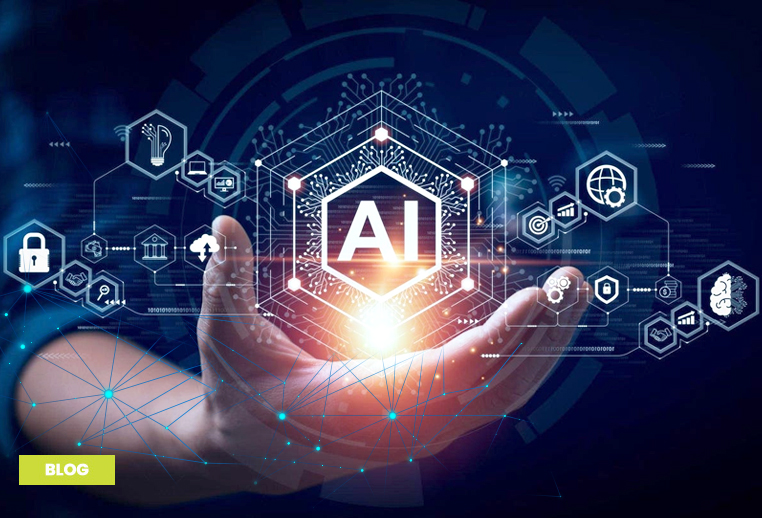Ethical Considerations in AI-Powered Digital Transformation
17 July, 2024 AIDigital Transformation
In recent years, integrating artificial intelligence (AI) in digital transformation has brought about significant advancements in various industries. From healthcare to finance, AI-powered solutions are transforming the way businesses operate, enhancing efficiency, and improving decision-making processes. However, with these technological advancements come a range of ethical considerations that must be addressed to ensure responsible and equitable implementation.
Let’s take a look at the ethical dimensions of AI-powered digital transformation, highlighting key issues and providing insights from digital transformation experts.
Introduction to AI-Powered Digital Transformation
AI-powered digital transformation refers to the incorporation of AI technologies into business processes and strategies to drive innovation, improve efficiency, and create new opportunities. This transformation involves leveraging machine learning, data analytics, natural language processing, and other AI techniques to automate tasks, analyze large datasets, and make data-driven decisions.
As businesses strive to stay competitive in a rapidly evolving digital landscape, AI has become a crucial component of their strategies. However, the deployment of AI systems also raises several ethical questions that must be addressed to ensure that these technologies are used responsibly and for the benefit of all stakeholders.
Ethical Considerations in AI-Powered Digital Transformation
Bias and Fairness
One of the most significant ethical concerns in AI-powered digital transformation is the potential for bias in AI algorithms. AI systems are trained on vast amounts of data, and if this data contains biases, the AI models can perpetuate and even amplify these biases. This can lead to unfair treatment of certain groups of people based on race, gender, age, or other characteristics.
Transparency and Accountability
Transparency is crucial in ensuring that AI systems are trustworthy and that their decisions can be understood and scrutinized. However, many AI models, particularly deep learning models, operate as “black boxes,” making it difficult to explain how they arrive at specific decisions. This lack of transparency can lead to accountability issues, especially when AI systems make critical decisions that affect people’s lives.
Privacy and Data Security
AI-powered digital transformation relies heavily on data, and the collection and use of personal data raise significant privacy and security concerns. Organizations must ensure that they comply with data protection regulations and implement robust security measures to protect sensitive information from unauthorized access and breaches.
Job Displacement and Workforce Implications
The automation of tasks through AI can lead to significant changes in the workforce, including job displacement and the creation of new job roles. While AI has the potential to increase productivity and create new opportunities, it can also result in job losses, particularly in industries that rely heavily on manual labor and routine tasks.
Ethical Use of AI in Decision-Making
AI systems are increasingly being used to make decisions in various domains, including healthcare, finance, criminal justice, and more. The ethical use of AI in decision-making requires careful consideration of the potential consequences and the development of guidelines to ensure that AI systems are used responsibly.
The Role of Digital Transformation Experts
Digital transformation experts play a critical role in addressing the ethical considerations associated with AI-powered digital transformation. Their expertise and insights are essential in guiding organizations through the complex landscape of AI ethics. This will also help in ensuring AI technologies are implemented responsibly.
Developing Ethical Guidelines
Digital transformation experts can help organizations develop ethical guidelines and frameworks for the deployment of AI technologies. These guidelines should address issues such as bias, transparency, privacy, and accountability, providing a roadmap for ethical AI implementation.
Conducting Ethical Audits
Ethical audits involve evaluating AI systems and their deployment processes to identify potential ethical issues and areas for improvement. Experts can conduct these audits, providing organizations with valuable insights into the ethical implications of their AI initiatives. Also, they can recommend corrective actions.
Promoting Ethical AI Practices
Digital transformation experts can advocate for the adoption of ethical AI practices within organizations and across industries. This includes promoting the use of diverse and representative datasets. Moreover, this encourages transparency in AI decision-making, and supporting initiatives that prioritize the ethical use of AI.
Educating Stakeholders
Education is a key component of ethical AI implementation. Digital transformation experts can educate stakeholders, including employees, customers, and policymakers. Organizations can ensure aligned AI initiatives with societal values and expectations.
Final Words
Digital transformation driven by AI has enormous potential to spur innovation and enhance corporate procedures in a variety of sectors. But it’s important to remember the ethical issues surrounding the use of AI. Organizations may make sure that their AI initiatives are equitable and responsible.
When it comes to helping firms navigate the moral terrain of AI-powered digital transformation, digital transformation specialists are essential. In order to create ethical rules, carry out audits, encourage ethical activities, and inform stakeholders. A proactive and cooperative approach to ethics will be essential. Because AI develops to fully utilize its potential while preserving social norms and guaranteeing the welfare of all parties involved.
